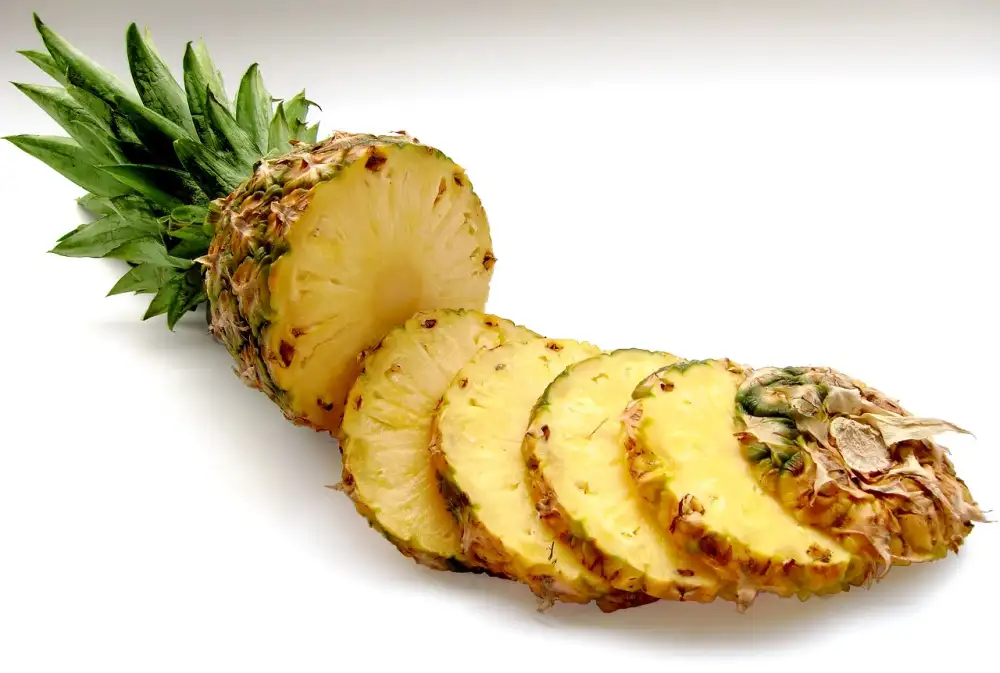Unveiling the Mystery: Why Does Pineapple Cause Mouth Discomfort? Exploring the Health Effects of Pineapple Consumption

Pineapple, with its juicy sweetness and tropical flavor, is a beloved fruit enjoyed by many. However, for some individuals, consuming pineapple can lead to an uncomfortable sensation in the mouth. This mystery has puzzled pineapple enthusiasts for years. What causes this discomfort? Is it a sign of an underlying health issue? In this article, we will delve into the science behind pineapple mouth discomfort and explore the various factors that contribute to this intriguing phenomenon. By understanding the reasons behind it, we can learn to embrace the joys of pineapple while being aware of its potential effects on our mouths.
The Enzyme Behind the Sensation: Bromelain
Have you ever wondered why eating pineapple sometimes leaves a tingling sensation in your mouth? The answer lies in an enzyme called bromelain. Bromelain is a powerful enzyme found in pineapple that plays a crucial role in breaking down proteins.
Bromelain is a proteolytic enzyme, meaning it has the ability to break down proteins into smaller peptides and amino acids. This enzymatic action is what gives pineapple its tenderizing properties and makes it an excellent meat tenderizer.
In addition to its role in protein digestion, bromelain also possesses anti-inflammatory and anti-coagulant properties. It has been used for centuries as a natural remedy for various health conditions, including reducing inflammation, promoting digestion, and improving immune function.
However, when it comes to the tingling sensation experienced after consuming pineapple, bromelain's proteolytic activity is the culprit. This enzyme has the ability to break down proteins found in the tissues of our mouths, including those on our tongues and cheeks. As a result, some individuals may experience mild irritation or discomfort.
It's important to note that not everyone reacts to bromelain in the same way. Some individuals may have a higher sensitivity to this enzyme and experience more pronounced mouth discomfort after eating pineapple. Others may not notice any discomfort at all.
In conclusion, bromelain is the enzyme responsible for the tingling sensation experienced after consuming pineapple. While this sensation can be uncomfortable for some individuals, it's important to remember that bromelain offers numerous health benefits as well. By understanding this enzyme and its effects on our mouths, we can better manage any discomfort while still enjoying the deliciousness of pineapple.
Bromelain's Effects on the Mouth: Breaking Down Proteins
Bromelain, the enzyme found in pineapple, is responsible for breaking down proteins. When consumed, bromelain comes into contact with the proteins in our mouth, causing them to break down. This enzymatic action can lead to a tingling or stinging sensation in some individuals. It is important to note that this reaction is not harmful and is only temporary. The presence of bromelain in pineapple also contributes to its tenderizing properties when used as a marinade for meats. So while it may cause some discomfort in the mouth, bromelain plays an important role in enhancing the flavors and textures of various dishes.
The Sensitivity Factor: Individual Reactions to Bromelain
Individual reactions to bromelain can vary greatly, with some people experiencing mild discomfort and others having more severe symptoms. This sensitivity factor is influenced by several factors, including genetics, overall oral health, and the amount of bromelain consumed. Some individuals may have a higher sensitivity to bromelain due to a genetic predisposition or an underlying oral condition such as gum disease or sensitive teeth. It is also important to note that consuming large amounts of pineapple or drinking pineapple juice can increase the likelihood of experiencing mouth discomfort. Therefore, it is crucial for individuals to be aware of their own sensitivity level and adjust their pineapple consumption accordingly.
Managing Pineapple Mouth Discomfort: Tips and Tricks
If you're one of the unfortunate few who experience mouth discomfort after eating pineapple, fear not! There are a few tips and tricks that can help alleviate this sensation.
Firstly, try pairing pineapple with other foods. Combining it with dairy products like yogurt or milk can help neutralize the enzymes responsible for the discomfort. Alternatively, you can also try eating pineapple alongside foods rich in starch, such as bread or rice.
Another effective method is to cook or grill the pineapple before consuming it. Heat breaks down bromelain, reducing its potency and minimizing the chances of mouth discomfort.
Additionally, chewing slowly and thoroughly can make a difference. This allows your saliva to mix with bromelain, diluting its effects on your mouth.
Lastly, if you still find yourself experiencing discomfort despite these measures, consider taking an over-the-counter antacid or enzyme supplement before consuming pineapple. These can help counteract the effects of bromelain on your mouth.
By implementing these tips and tricks, you can enjoy the deliciousness of pineapple without worrying about any unwanted side effects. So go ahead and indulge in this tropical delight with confidence!
While pineapple may cause some discomfort for certain individuals, it is important to remember that this tropical fruit offers numerous health benefits and culinary delights. By understanding the role of bromelain in causing mouth discomfort and being aware of our individual sensitivity to this enzyme, we can still enjoy the pleasures of pineapple while minimizing any potential side effects.
To fully embrace the joys of pineapple, it is recommended to consume it in moderation and gradually increase your intake to gauge your tolerance. Pairing pineapple with other foods or cooking methods that can help neutralize bromelain's effects, such as grilling or marinating, can also be beneficial.
Additionally, if you experience significant discomfort after consuming pineapple, it may be worth consulting with a healthcare professional to rule out any underlying allergies or sensitivities. They can provide personalized advice on managing your pineapple consumption based on your specific needs.
By approaching pineapple consumption with awareness and taking necessary precautions, we can continue to savor its unique flavor and reap its many nutritional benefits. So go ahead and indulge in this tropical delight while keeping your taste buds happy and your health in check!
Published: 04. 01. 2024
Category: Health



